Three Penn Vet Faculty Appointed to Endowed Professorships


 Andrew M. Hoffman, the Gilbert S. Kahn Dean of the School of Veterinary Medicine at the University of Pennsylvania, announced professorship appointments for three faculty members. Thomas D. Parsons has been appointed the Marie A. Moore Professor of Animal Welfare and Ethics, Christopher J. Lengner has been appointed the Harriet Ellison Woodward Associate Professor of Biomedical Sciences, and Amy L. Johnson has been appointed the Marilyn M. Simpson Associate Professor of Equine Medicine. Each of the appointments will go into effect on July 1, 2022.
Andrew M. Hoffman, the Gilbert S. Kahn Dean of the School of Veterinary Medicine at the University of Pennsylvania, announced professorship appointments for three faculty members. Thomas D. Parsons has been appointed the Marie A. Moore Professor of Animal Welfare and Ethics, Christopher J. Lengner has been appointed the Harriet Ellison Woodward Associate Professor of Biomedical Sciences, and Amy L. Johnson has been appointed the Marilyn M. Simpson Associate Professor of Equine Medicine. Each of the appointments will go into effect on July 1, 2022.
Thomas D. Parsons, who is currently a professor of swine medicine in the department of clinical studies at New Bolton Center; professor of otorhinolaryngology at the Perelman School of Medicine (PSOM); and director of the Swine Teaching and Research Center, is a graduate of Amherst College. He received his VMD and PhD (neuroscience) from the University of Pennsylvania. While at Penn, Dr. Parsons studied in the veterinary medical scientist training program and then was supported by the von Humboldt Society to train at the Max Planck Institute for Biomedical Research in Heidelberg, Germany. He joined Penn’s faculty in 1995 as assistant professor of swine medicine; he was promoted to associate professor of swine production medicine in 2005 and became a full professor in 2019. Dr. Parsons is a charter member of the American College of Animal Welfare, and serves as the faculty coordinator for Penn’s masters program in animal welfare and behavior, as well as head of mammalian field investigations for the Pennsylvania Diagnostic Laboratories at New Bolton Center (PADLS). His research focuses on the advancement of sustainable models of agriculture through the study of animal behavior, health, welfare, and applications of technology. Parsons is recognized globally by scholars and industry leaders for re-envisioning swine housing and feeding systems to improve welfare.
Christopher J. Lengner, who is currently an associate professor in the department of biomedical sciences at Penn Vet; associate professor in the department of cell and developmental biology at the Perelman School of Medicine (PSOM); co-director of the Center for Animal Transgenesis, and associate director of the Institute for Regenerative Medicine; is a graduate of the Worcester Polytechnic Institute. He received his PhD from the University of Massachusetts Medical School, then went on to become a Ruth Kirschstein Postdoctoral Fellow at the Whitehead Institute and at MIT in the lab of Rudolf Jaenisch. As a postdoc, he made seminal contributions to the field of epigenetic reprogramming in the generation of induced pluripotent stem cells—knowledge which is now broadly applied in disease modeling and development of cell-based therapies. Dr. Lengner joined Penn’s faculty in 2011 as an assistant professor. In 2017 he was named associate professor, and he was appointed a Penn Fellow in 2019. He is a member of the PSOM’s NIH P30 Center for Molecular Studies in Digestive and Liver Diseases and the Tumor Biology Program of the Abramson Cancer Center. Currently, the Lengner lab employs genetic and genomic tools in organoid models to understand the molecular mechanisms that govern stem cell self-renewal, and how those mechanisms become dysregulated in disease states, particularly cancer. Dr. Lengner’s research has appeared in nearly 100 peer-reviewed publications including in field-leading journals such as Cell, Stem Cell, Cancer Cell, and Gastroenterology.
Amy L. Johnson, who is currently an associate professor of large animal medicine and neurology, in the department of clinical studies at New Bolton Center, is a graduate of the University of Pennsylvania. She received her DVM with distinction from Cornell University College of Veterinary Medicine. Dr. Johnson completed a residency in large animal internal medicine at Cornell, followed by a residency in neurology at Penn. She was the first American veterinarian, and the second veterinarian in the world, granted dual certification in neurology and large animal internal medicine through the American College of Veterinary Internal Medicine (ACVIM). Dr. Johnson joined Penn Vet as a lecturer at New Bolton Center in 2007; became an assistant professor in 2011; and in 2019, was promoted to associate professor and assumed the role of section chief of Internal Medicine and Ophthalmology. Dr. Johnson’s primary research focus is on improving antemortem diagnosis of neurologic disease in horses; with a secondary interest in infectious diseases including equine protozoal myeloencephalitis (EPM) and Lyme neuroborreliosis.
“Doctors Parsons, Lengner, and Johnson are excellent role models; the consummate blend of scientist, teacher, and mentor that our endowed professors should embody,” said Dean Hoffman. “All three of them reflect the values and dedication that are vital to the mission of Penn Vet and to our community. I am delighted to have them on our faculty; their collective research and academic leadership are undeniably fitting for these signature professorships.”
The awarding of named endowed professorships are the highest honor bestowed upon faculty at the University of Pennsylvania. Endowed professorships reflect excellence in scholarly achievement and embody a commitment to scientific discovery, clinical excellence, mentorship, and service.

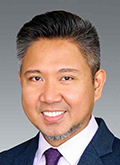 Dalmacio Dennis Flores is an assistant professor of nursing in the department of family and community health. Dr. Flores has had a pronounced positive impact on undergraduate students and their understanding of nursing research, mentoring students in classes like LGBT Health and in extracurricular settings, including the Asian Pacific American Nursing Student Association, where he serves as faculty advisor. As the principal investigator for research initiatives pertaining to parent-child sex communication, Dr. Flores has demonstrated exceptional leadership in mentoring students who possess a distinct interest in pursuing the research field. In particular, he is able to exceed students’ expectations in acquiring an understanding of research skills by making certain that each individual has the opportunity to undertake various endeavors in this discipline. Leading by example, Dr. Flores’ resilience and flexibility with the impact of the COVID-19 pandemic on his current research projects, which include the Sexual Health Inclusivity during Family Talks (SHIFT) Study, encourages his students to find innovative ways to conduct and engage with research. His ability to build a mutually rewarding relationship with his students, both inside and outside of the classroom, speaks to Dr. Flores’ embodiment of an ideal undergraduate scholarly mentor.
Dalmacio Dennis Flores is an assistant professor of nursing in the department of family and community health. Dr. Flores has had a pronounced positive impact on undergraduate students and their understanding of nursing research, mentoring students in classes like LGBT Health and in extracurricular settings, including the Asian Pacific American Nursing Student Association, where he serves as faculty advisor. As the principal investigator for research initiatives pertaining to parent-child sex communication, Dr. Flores has demonstrated exceptional leadership in mentoring students who possess a distinct interest in pursuing the research field. In particular, he is able to exceed students’ expectations in acquiring an understanding of research skills by making certain that each individual has the opportunity to undertake various endeavors in this discipline. Leading by example, Dr. Flores’ resilience and flexibility with the impact of the COVID-19 pandemic on his current research projects, which include the Sexual Health Inclusivity during Family Talks (SHIFT) Study, encourages his students to find innovative ways to conduct and engage with research. His ability to build a mutually rewarding relationship with his students, both inside and outside of the classroom, speaks to Dr. Flores’ embodiment of an ideal undergraduate scholarly mentor.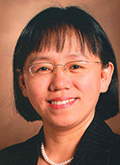 Jie Deng is an associate professor of nursing in the department of biobehavioral health sciences and faculty director of the Laboratory of Innovative & Translational Nursing Research. In her course Scientific Inquiry for Evidence-Based Practice, Dr. Deng regularly assesses students’ prior knowledge about the course topics and what students would like to focus on for further education, tailoring her instruction accordingly. She cultivates a teaching environment that encourages all students to think critically, setting a strong foundation for their future careers as nurses and healthcare leaders. In addition, Dr. Deng not only introduces her students to fundamental concepts in nursing and research, but also nurtures them as they develop specific interests. While transitioning to research can be a daunting task for new students, Dr. Deng makes sure that they are gradually exposed to new concepts and receive support whenever needed. Dr. Deng creates a welcoming environment for new students, goes out of her way to reassure her mentees, and genuinely cares for her students outside of the School of Nursing. Dr. Deng cultivates curiosity and ambition in her students, allowing them to grow and become independent thinkers.
Jie Deng is an associate professor of nursing in the department of biobehavioral health sciences and faculty director of the Laboratory of Innovative & Translational Nursing Research. In her course Scientific Inquiry for Evidence-Based Practice, Dr. Deng regularly assesses students’ prior knowledge about the course topics and what students would like to focus on for further education, tailoring her instruction accordingly. She cultivates a teaching environment that encourages all students to think critically, setting a strong foundation for their future careers as nurses and healthcare leaders. In addition, Dr. Deng not only introduces her students to fundamental concepts in nursing and research, but also nurtures them as they develop specific interests. While transitioning to research can be a daunting task for new students, Dr. Deng makes sure that they are gradually exposed to new concepts and receive support whenever needed. Dr. Deng creates a welcoming environment for new students, goes out of her way to reassure her mentees, and genuinely cares for her students outside of the School of Nursing. Dr. Deng cultivates curiosity and ambition in her students, allowing them to grow and become independent thinkers.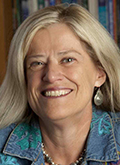
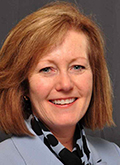 Beth Quigley is an advanced senior lecturer in the department of biobehavioral health sciences. Connie Scanga is a practice professor of nursing in the department of biobehavioral health sciences. Ms. Quigley and Dr. Scanga are described as a true teaching team that has refined Anatomy, Physiology, and Physical Assessment into a course that prepares students far beyond the classroom. Creative teaching has always been a hallmark of their teaching and online teaching did not deter their innovative practices. Ms. Quigley ensured that each student had a kit with supplies mailed to their homes to be able to perform assessments. Dr. Scanga’s work with HoloLens, bringing 3D images and new technology into the classroom, heightened in-person learning while making virtual dissection with apps possible for online courses. The preparedness of their students continues to impress instructors of other courses at Penn Nursing.
Beth Quigley is an advanced senior lecturer in the department of biobehavioral health sciences. Connie Scanga is a practice professor of nursing in the department of biobehavioral health sciences. Ms. Quigley and Dr. Scanga are described as a true teaching team that has refined Anatomy, Physiology, and Physical Assessment into a course that prepares students far beyond the classroom. Creative teaching has always been a hallmark of their teaching and online teaching did not deter their innovative practices. Ms. Quigley ensured that each student had a kit with supplies mailed to their homes to be able to perform assessments. Dr. Scanga’s work with HoloLens, bringing 3D images and new technology into the classroom, heightened in-person learning while making virtual dissection with apps possible for online courses. The preparedness of their students continues to impress instructors of other courses at Penn Nursing. Kerry Shields is a lecturer in the department of family and community health. Ms. Shields’s formal education and professional experience in healthcare are at the core of her pedagogy. Ms. Shields creates a rich academic experience for her students. She brings evidence-based practice to life by inviting lecturers to her classroom who expand upon their research from reputable publications in nursing. Her ability to help her students link theory into everyday practice inspires her students to think beyond the slides of a presentation. Ms. Shields fosters an environment inside and outside of the classroom that encourages students to approach her about challenges faced in the academic, professional, and personal spheres. Her deliberate planning and built-in flexibility as an instructor alongside her ability to instill confidence in her students is unparalleled and acknowledged by her students and peers. Ms. Shields’s exceptional efforts to enhance the education and professional personas of her students make her an invaluable professor.
Kerry Shields is a lecturer in the department of family and community health. Ms. Shields’s formal education and professional experience in healthcare are at the core of her pedagogy. Ms. Shields creates a rich academic experience for her students. She brings evidence-based practice to life by inviting lecturers to her classroom who expand upon their research from reputable publications in nursing. Her ability to help her students link theory into everyday practice inspires her students to think beyond the slides of a presentation. Ms. Shields fosters an environment inside and outside of the classroom that encourages students to approach her about challenges faced in the academic, professional, and personal spheres. Her deliberate planning and built-in flexibility as an instructor alongside her ability to instill confidence in her students is unparalleled and acknowledged by her students and peers. Ms. Shields’s exceptional efforts to enhance the education and professional personas of her students make her an invaluable professor. Jennie Greco Lattimer is a lecturer in the department of family and community health and the clinical-site coordinator of the Family Nurse Practitioner program. As a practicing lead breast oncology nurse practitioner at HUP, Ms. Lattimer provides her students with an education that is informed, experienced, and current. Her ability to individualize her teaching to the interests of her students is unparalleled and her unwavering dedication to her students’ personal and professional development has been lauded. Ms. Lattimer consistently surpasses expectations as a clinical educator. She goes the extra mile to ensure that her students feel challenged and comforted with their work and commits to finding sites for her students to meet clinical hour quotas throughout the COVID-19 pandemic. Her students view her as a role model for their future nursing practices. Ms. Lattimer embodies what it means to be a leader in the field of nursing science and her students have expressed their deepest gratitude for her contribution to the advancement of their nursing and leadership endeavors.
Jennie Greco Lattimer is a lecturer in the department of family and community health and the clinical-site coordinator of the Family Nurse Practitioner program. As a practicing lead breast oncology nurse practitioner at HUP, Ms. Lattimer provides her students with an education that is informed, experienced, and current. Her ability to individualize her teaching to the interests of her students is unparalleled and her unwavering dedication to her students’ personal and professional development has been lauded. Ms. Lattimer consistently surpasses expectations as a clinical educator. She goes the extra mile to ensure that her students feel challenged and comforted with their work and commits to finding sites for her students to meet clinical hour quotas throughout the COVID-19 pandemic. Her students view her as a role model for their future nursing practices. Ms. Lattimer embodies what it means to be a leader in the field of nursing science and her students have expressed their deepest gratitude for her contribution to the advancement of their nursing and leadership endeavors. Karen B. Lasater is an assistant professor of nursing in the department of biobehavioral health sciences. Dr. Lasater leads Statistics for Research and Measurement, a course that all BSN nursing students take during their time at Penn. Though many students enter the class intimidated, Dr. Lasater and her teaching style subside any feelings of apprehension. Dr. Lasater provides examples from her research to help students understand difficult theoretical concepts and is also able to answer any question presented. Dr. Lasater is also keen on stimulating student interests. She elicits information to better understand her students on a personal level. The class is further partitioned into smaller groups based on future nursing specialties of students. Her innovative teaching styles break the barrier remote teaching often creates. Additionally, she targets course readings, assignments, and projects specifically for each individual/interest group, based on their areas of common interest. Dr. Lasater’s accessibility and diligence as an instructor not only demonstrate the qualities of an excellent teacher, but also the characteristics her students will strive to emulate in their careers in nursing.
Karen B. Lasater is an assistant professor of nursing in the department of biobehavioral health sciences. Dr. Lasater leads Statistics for Research and Measurement, a course that all BSN nursing students take during their time at Penn. Though many students enter the class intimidated, Dr. Lasater and her teaching style subside any feelings of apprehension. Dr. Lasater provides examples from her research to help students understand difficult theoretical concepts and is also able to answer any question presented. Dr. Lasater is also keen on stimulating student interests. She elicits information to better understand her students on a personal level. The class is further partitioned into smaller groups based on future nursing specialties of students. Her innovative teaching styles break the barrier remote teaching often creates. Additionally, she targets course readings, assignments, and projects specifically for each individual/interest group, based on their areas of common interest. Dr. Lasater’s accessibility and diligence as an instructor not only demonstrate the qualities of an excellent teacher, but also the characteristics her students will strive to emulate in their careers in nursing.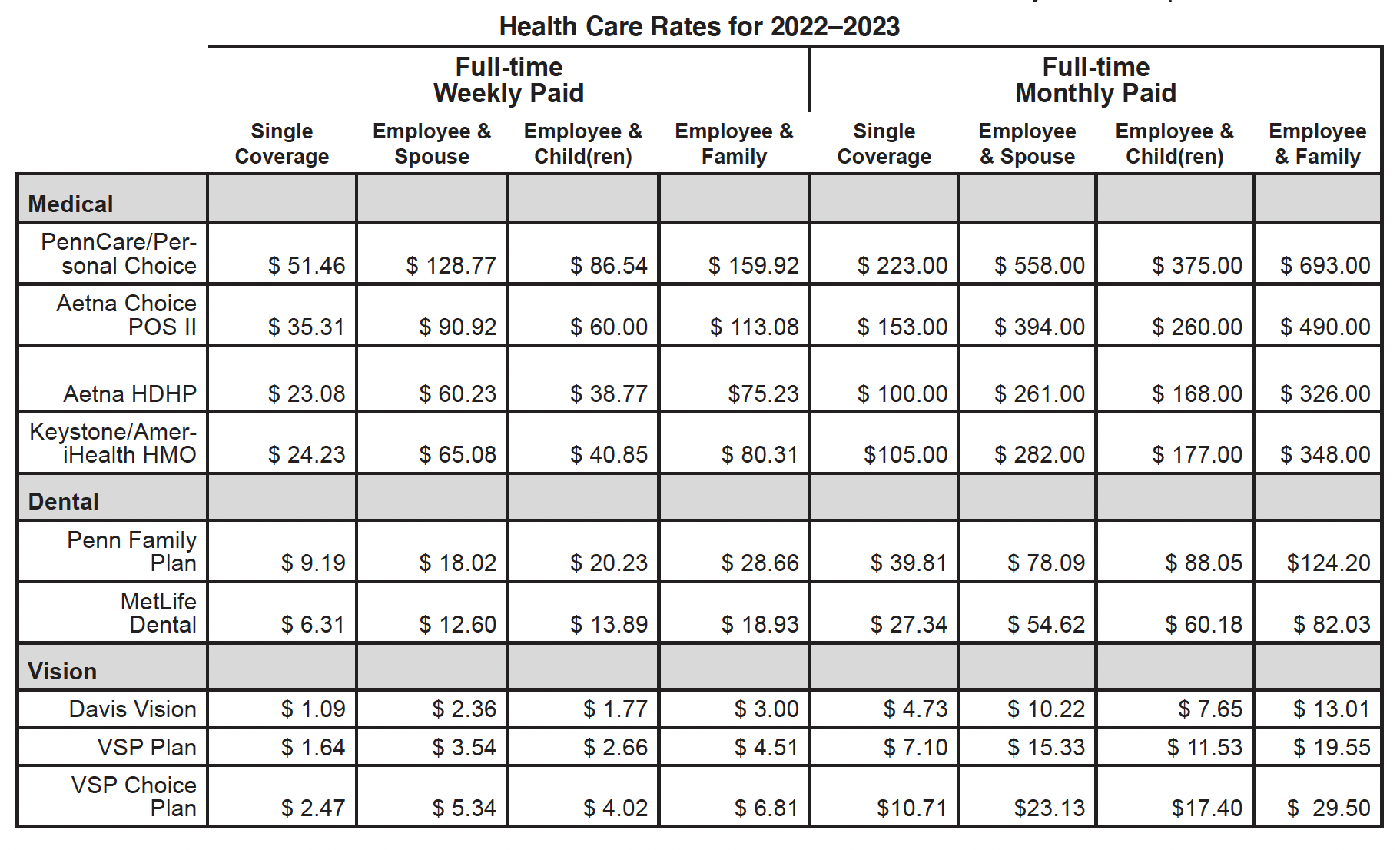
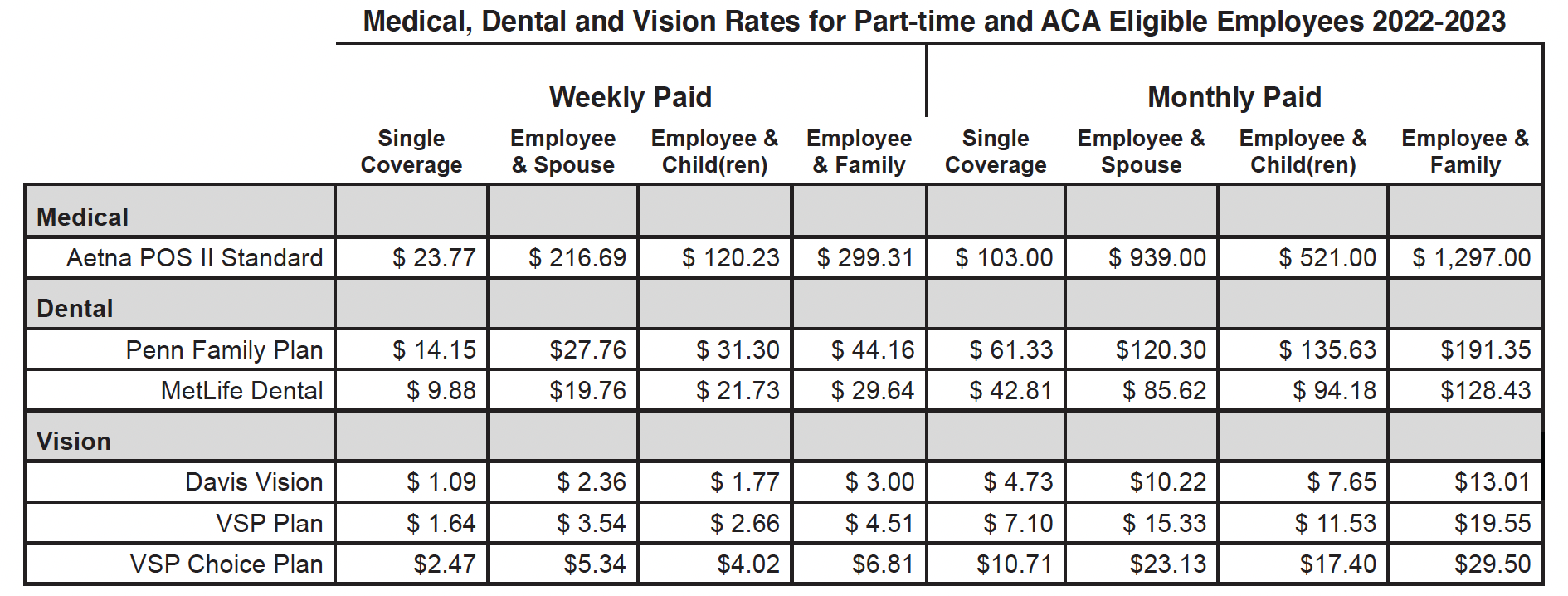
 Harold Bonavita-Goldman, a former member of the board of advisors at the University of Pennsylvania’s School of Social Policy & Practice and the first openly gay president and CEO of the Jewish Federation of Greater Philadelphia, passed away on February 5 of complications of cancer and COVID-19. He was 79.
Harold Bonavita-Goldman, a former member of the board of advisors at the University of Pennsylvania’s School of Social Policy & Practice and the first openly gay president and CEO of the Jewish Federation of Greater Philadelphia, passed away on February 5 of complications of cancer and COVID-19. He was 79.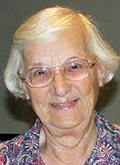 Sister Rose Kershbaumer, BSN’69, MSN’71, a former faculty member at Penn Nursing and the founder and director of several Penn centers that had global impact, passed away on March 20. She was 94.
Sister Rose Kershbaumer, BSN’69, MSN’71, a former faculty member at Penn Nursing and the founder and director of several Penn centers that had global impact, passed away on March 20. She was 94. 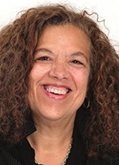 Mia Bay, the Roy F. and Jeannette P. Nichols Professor of American History in the School of Arts and Sciences, has won this year’s Bancroft Prize for her book, Traveling Black: A Story of Race and Resistance. The prize is considered one of the most prestigious honors in the field of American history. Columbia University’s Mae Ngai was the other recipient for her book, The Chinese Question: The Gold Rushes and Global Politics.
Mia Bay, the Roy F. and Jeannette P. Nichols Professor of American History in the School of Arts and Sciences, has won this year’s Bancroft Prize for her book, Traveling Black: A Story of Race and Resistance. The prize is considered one of the most prestigious honors in the field of American history. Columbia University’s Mae Ngai was the other recipient for her book, The Chinese Question: The Gold Rushes and Global Politics. Penn Nursing’s Nancy A. Hodgson, the Claire M. Fagin Leadership Professor in Nursing and chair of the department of biobehavioral health sciences, will be honored by Sigma Theta Tau International (STTI) for her contributions to the nursing profession during the organization’s 33rd International Nursing Research Congress in Edinburgh, Scotland, in July.
Penn Nursing’s Nancy A. Hodgson, the Claire M. Fagin Leadership Professor in Nursing and chair of the department of biobehavioral health sciences, will be honored by Sigma Theta Tau International (STTI) for her contributions to the nursing profession during the organization’s 33rd International Nursing Research Congress in Edinburgh, Scotland, in July.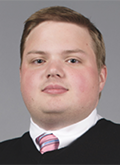 Benjamin Nadolsky, L’24, WG’24, has been appointed to a seat on President Biden’s Architectural and Transportation Barriers Compliance Board.
Benjamin Nadolsky, L’24, WG’24, has been appointed to a seat on President Biden’s Architectural and Transportation Barriers Compliance Board.